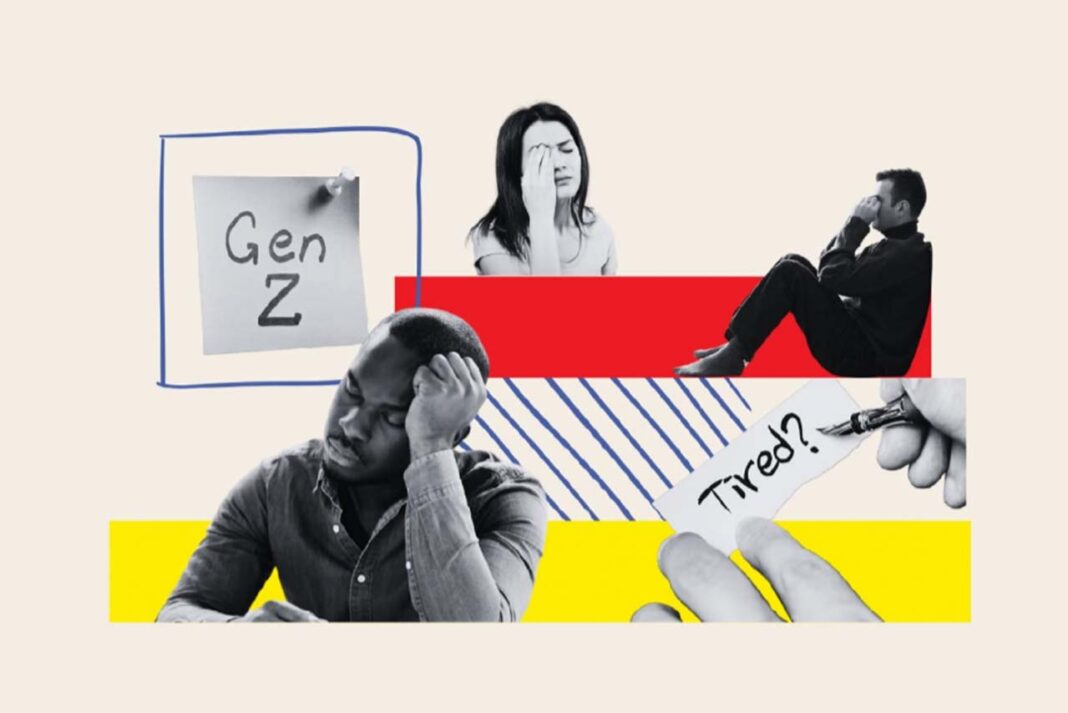The Emotional State Of A Generation Starting Adulthood Exhausted
The Fatigue Of A New Generation Is Not Told — It’s Felt
We all feel “tired” from time to time. But for Generation Z — those born roughly between 1997 and 2012 — fatigue has become a permanent emotional climate rather than a passing state.
Many young adults today feel exhausted before life has even begun, overwhelmed not by laziness or apathy, but by the psychological weight of a hyperconnected, unstable world.
This is not mere teenage melancholy; it is collective burnout — a generation raised on crises, comparisons, and contradictions. But where does this exhaustion stem from?
1. The World Has Never Been This Chaotic
Gen Z’s formative years were shaped by pandemics, economic collapses, climate disasters, and political unrest.
Every morning, they wake up to another global tragedy on their phones — a constant stream of bad news that keeps the brain in chronic alert mode.
Before they even have the chance to understand themselves, they’re expected to understand and “save” the world.
The result? Persistent anxiety about the future, emotional overload, and what psychologists now call eco-anxiety — the distress caused by an awareness of global instability.
2. Being Constantly Online Means Being Perpetually Alone
While technology connects Gen Z to everything, it also isolates them from everyone.
They were born into digital identities, their sense of self intertwined with likes, comments, and algorithms.
Social media, the primary lens through which they view the world, distorts reality.
Online, everyone appears effortlessly successful, happy, and thriving — a curated illusion that breeds comparison and inadequacy.
“Even if I have a good day, seeing someone on Instagram having a better one ruins my mood.”
— University Student, 21
Behind this hyperconnectivity lies an epidemic of loneliness. A 2020 Statista study found that Gen Z reports the highest loneliness rates among all generations, despite being the most digitally connected.
3. Feeling Defeated Before The Race Even Begins
Previous generations were guided by the promise, “If you work hard, you’ll succeed.”
For Gen Z, that promise has fractured.
They collect diplomas, certificates, internships — yet face record-high unemployment and economic uncertainty.
No matter how much they achieve, it never feels enough.
This constant pressure to optimize — to be more productive, more skilled, more perfect — has created a psychological paradox:
The harder they work to succeed, the more inadequate they feel.
In a system that equates self-worth with output, burnout becomes inevitable.
4. Getting Lost While Trying To Find Oneself
Gen Z is often praised as the most open-minded generation — embracing fluidity in gender, identity, and culture.
Yet this openness can sometimes morph into existential fatigue.
In a world where everything — jobs, relationships, values — feels temporary, the question “Who am I?” becomes more paralyzing than empowering.
Their quest for authenticity collides with an identity economy that rewards performance over selfhood.
Being yourself is harder when the world constantly asks you to define — and redefine — who that self should be.
5. No Room For Feelings: Everything Must Be Fast
This generation was born into a culture of speed.
If a video doesn’t grab attention in three seconds, we scroll. Articles are replaced by headlines.
This instant-gratification mindset has seeped into emotional life, too.
There’s no time for sadness, loneliness, or uncertainty — everything must be “fixed” fast.
But the human psyche doesn’t work on a fast-forward button.
Unprocessed emotions pile up like unsent messages — and eventually manifest as emotional exhaustion and burnout.
Conclusion: Not Laziness — Burnout
Gen Z isn’t lazy. If anything, they are hyper-aware, hyper-informed, and hyper-driven.
But awareness comes with a cost: emotional overload.
To understand this generation, we must see beyond their screen time and academic achievements — we must also see their silent exhaustion.
They aren’t just striving for success; they’re struggling to find meaning in a system that demands constant motion but offers little emotional rest.
This is not rebellion, nor apathy — it’s “Silent Burnout.”
Turkish Context: Recent Studies On Youth Burnout
| Study / Topic | Participants / Scope | Key Findings |
|---|---|---|
| Digital Burnout Among Adolescents, Youth, and Young Adults | National sample of Turkish adolescents and young adults | Identified three dimensions of digital burnout: digital weariness, digital deprivation, and emotional exhaustion. Average burnout level: 2.57 (on a 1–5 scale). |
| Burnout and Life Satisfaction Among University Students (KSU Sample) | 475 university students | Found high burnout and low life satisfaction, with a significant negative correlation between the two. |
| Perceived Social Support and Coping With Stress Among Gen Z University Students | 803 students at a Turkish public university | Found a strong positive correlation between social support (family, friends, significant others) and psychological well-being (relatedness, competence, autonomy). |
References
-
Özdemir, N., & Erten, A. (2025). Ergen, genç ve genç yetişkinlerde dijital tükenmişlik. Journal of Social and Humanities Sciences Research, 12(4), 2154–2170. Link
-
Macit, M. (2020). Üniversite öğrencilerinde tükenmişlik ve yaşam tatmini arasındaki ilişki. KSU Journal of Social Sciences, 17(1), 45–60. Link
-
Yıldırım, A., & Gündoğdu, M. (2022). Z kuşağı üniversite öğrencilerinin algıladıkları sosyal destek ve stresle başa çıkma düzeyleri arasındaki ilişki. Journal of Education and Future, 22(3), 112–132. Link
-
Statista. (2020). Gen Z is lonely: Percent of U.S. adults who are lonely, shown as demographics. Graph


